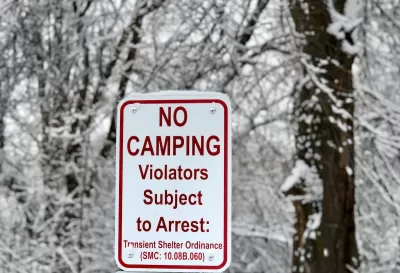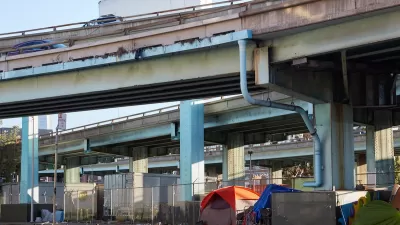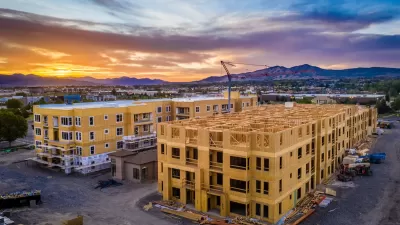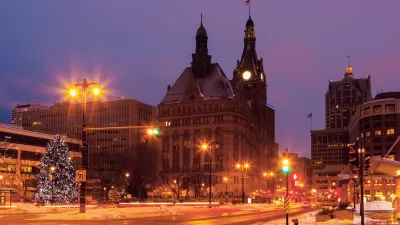The sharp increase in the unhoused population calls for urgent action, not criminalization.

In an opinion piece for The Hill, Margot Kushel and Gregg Colburn argue that the criminalization of homelessness does nothing to address its root causes, and that governments should focus on creating more affordable housing instead.
The authors point to a Supreme Court case, Grants Pass v. Johnson, which could decide whether local governments can criminalize living outdoors when shelter is not available. “This case has resulted in an inaccurate and harmful framing of homelessness by suggesting that there are only two potential outcomes: Either arrest those who are unhoused or homelessness will become an inevitable and permanent fixture of the urban landscape.”
The authors point to a third option: “providing subsidized housing with services to people experiencing homelessness.” Rather than forcibly displacing people, governments can do more to address structural causes like access to housing.
“Coordinated and well-resourced local efforts can make a measurable impact on homelessness, but without federal funding, there won’t be sustained success.” The drastic reduction in veteran homelessness since 2010 reveals the potential impact of an “appropriately scaled” federal initiative.
For the authors, “The answers to homelessness are clear. It is critical that policymakers in local, state and federal governments use their power to address the acute affordable housing shortage that plagues communities in every state in the nation.”
FULL STORY: Affordable housing is the solution to homelessness, not criminalization

Planetizen Federal Action Tracker
A weekly monitor of how Trump’s orders and actions are impacting planners and planning in America.

Map: Where Senate Republicans Want to Sell Your Public Lands
For public land advocates, the Senate Republicans’ proposal to sell millions of acres of public land in the West is “the biggest fight of their careers.”

Restaurant Patios Were a Pandemic Win — Why Were They so Hard to Keep?
Social distancing requirements and changes in travel patterns prompted cities to pilot new uses for street and sidewalk space. Then it got complicated.

California Homeless Arrests, Citations Spike After Ruling
An investigation reveals that anti-homeless actions increased up to 500% after Grants Pass v. Johnson — even in cities claiming no policy change.

Albuquerque Route 66 Motels Become Affordable Housing
A $4 million city fund is incentivizing developers to breathe new life into derelict midcentury motels.

DC Area County Eliminates Bus Fares
Montgomery County joins a growing trend of making transit free.
Urban Design for Planners 1: Software Tools
This six-course series explores essential urban design concepts using open source software and equips planners with the tools they need to participate fully in the urban design process.
Planning for Universal Design
Learn the tools for implementing Universal Design in planning regulations.
Heyer Gruel & Associates PA
JM Goldson LLC
Custer County Colorado
City of Camden Redevelopment Agency
City of Astoria
Transportation Research & Education Center (TREC) at Portland State University
Camden Redevelopment Agency
City of Claremont
Municipality of Princeton (NJ)





























